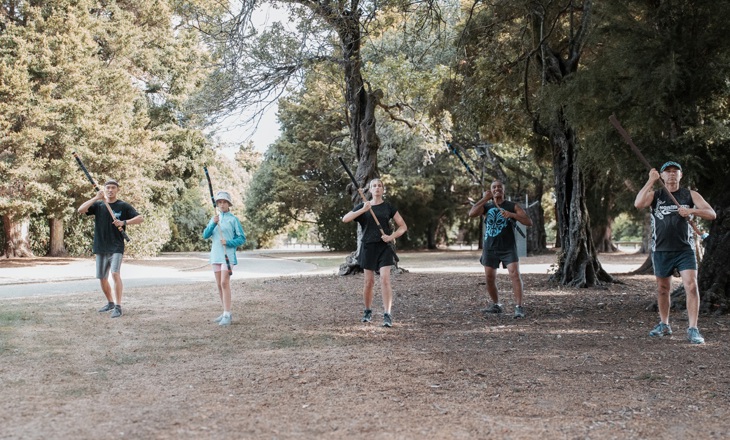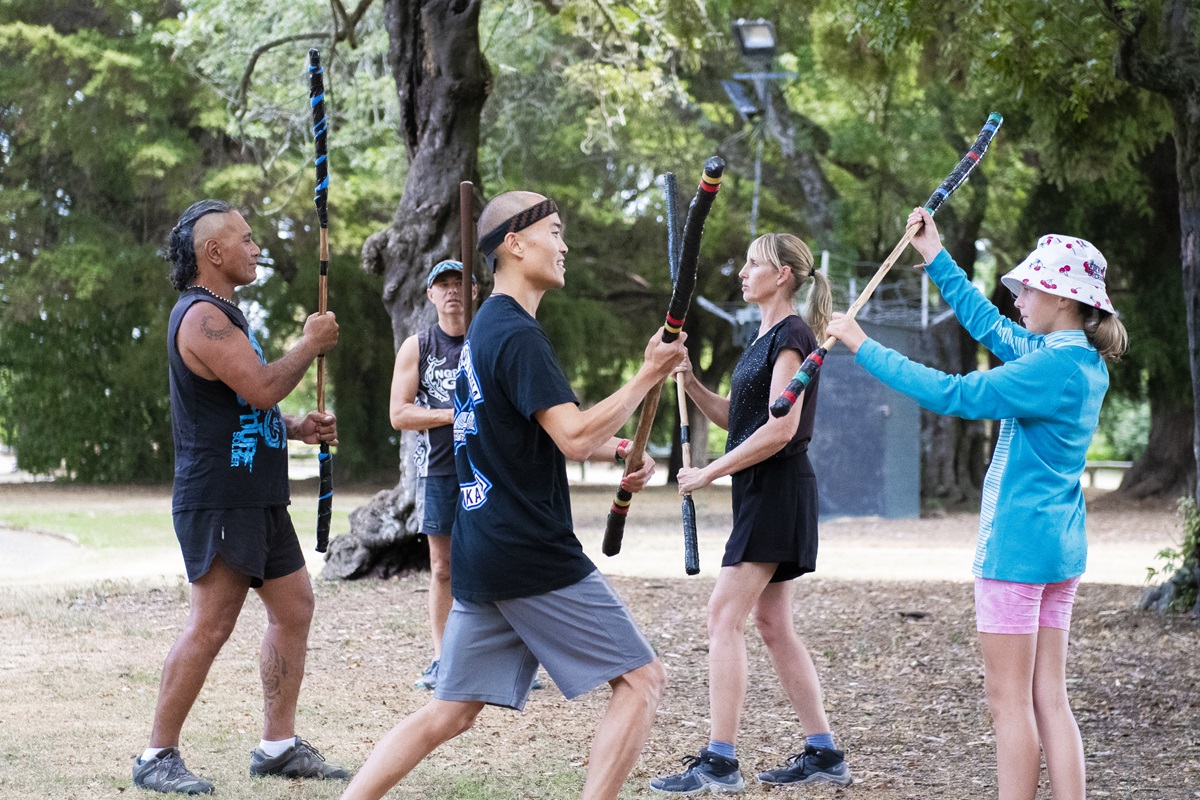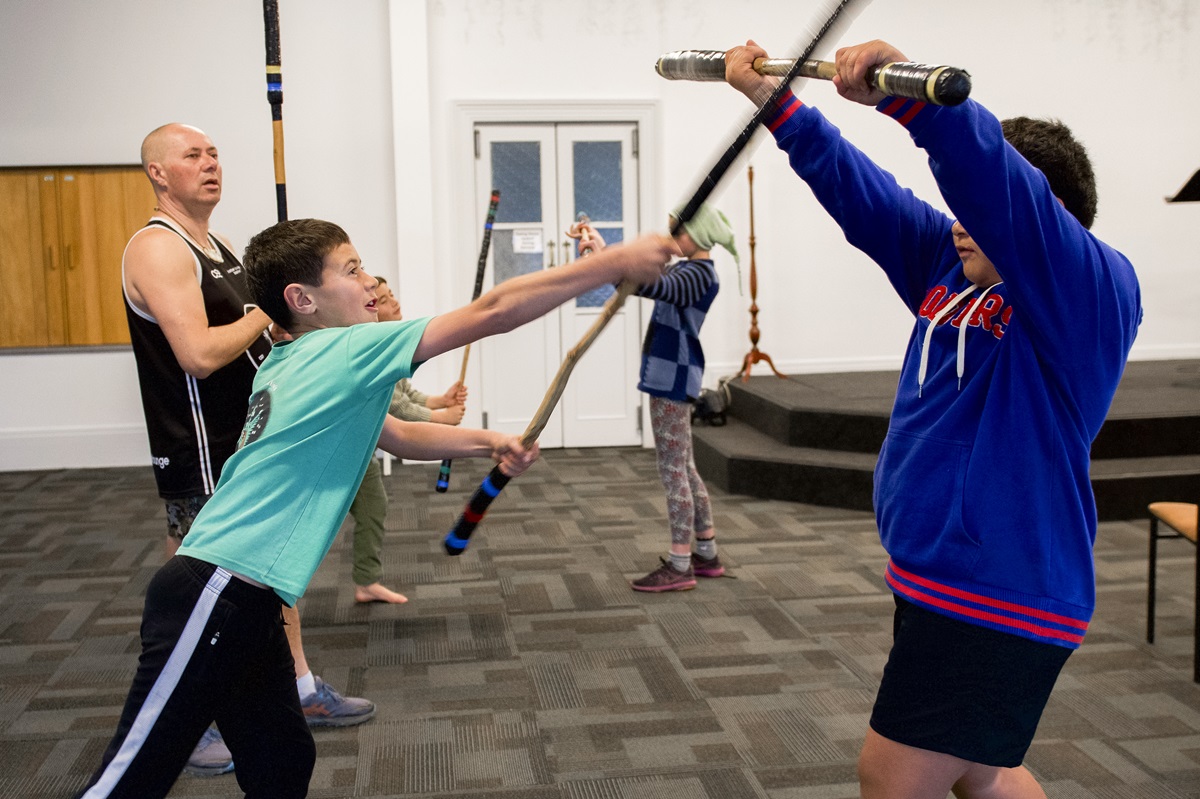Mau Rākau ignites pride and purpose in Tasman rangatahi
Mau Rākau ignites pride and purpose in Tasman rangatahi

In the Nelson-Tasman region, a group of rangatahi are discovering strength, identity and connection through Mau Rākau – a traditional Māori martial art that’s doing far more than teaching combat skills. It’s helping young people build confidence, deepen their cultural roots and find a sense of belonging.
Te Tai o Awatea is a kaupapa Māori organisation dedicated to revitalising te reo Māori, tikanga and mātauranga Māori. Through wānanga, creative projects and community-led initiatives, they are reconnecting whānau with taonga tuku iho – ancestral knowledge and cultural practices. Mau Rākau is one of their initiatives that is proving to be a powerful vehicle for cultural reconnection and personal growth.
Through the art of traditional weaponry – including taiaha – and other close combat techniques, rangatahi are gaining more than physical skills. Sport Tasman through Tū Manawa funding, is proud to support this kaupapa that has helped Motueka Steiner School tauira (student) Eva Sparkes thrive since she joined 2 years ago.
Eva and her 2 brothers live with their grandparents. Her grandmother, Natasha, saw joining the initiative as a good way to help Eva build a connection to Māori culture.
“I’ve always tried to encourage them in activities where they can learn more te reo and have access to Māori culture,” Natasha explains. “Eva was always keen to learn te reo, but not being Māori ourselves, we couldn’t provide that knowledge.”
Mau Rākau has helped to give Eva a sense of identity and belonging and a boost in confidence, says Natasha. Since learning Mau Rākau, Eva has been to 2 wānanga at the Nelson marae.
“I got the chance to practice what I learn in the group and experience the marae. It was challenging and gave me a chance to practice te reo and make new friends.”

Many rangatahi who have been a part of the programme have stepped up into leadership roles, performed in kapa haka at national events, supported their local iwi and marae and welcomed visitors from near and far.
As pouako (teacher) Sean Delany explains, Mau Rākau is a vehicle for teaching tikanga Māori and te reo Māori and has many facets. A vital part is hauora – spiritual, mental, emotional, relational and physical wellbeing. So too, is whanaungatanga (kinship).
“We coin the phrase ‘he puna aroha – creating a safe space’ for members or whānau to be authentic in themselves, which in turn, develops 'tuakiritanga (identity)’. Building resilience is another important part of our approach,” says Sean.
In today’s digital world, Te Tai o Awatea kaiwhakahaere, Louise Petzold says rangatahi and whānau need support for their hauora.
“Mau Rākau provides a rongoā - a remedy - for some of the restrictions in lifestyle that our young people experience each day.
“It’s a taonga tuku iho - a treasure handed from ancestors - so by its very nature it draws on and is carried by the immense mauri of that. And that creates a mauri ora (vitality and wellbeing) space for all participants to benefit from,” says Louise.
David Norgate from Sport Tasman reflects on the impact of this inspiring kaupapa:
“Taiaha ha! Taiaha ha! Mā te aha e wana ake ā mātou rangatahi? Mā te taiaha e wana ake ā mātou rangatahi!”
“What will cause the hearts of our young people to be awakened? It will be taiaha!”
